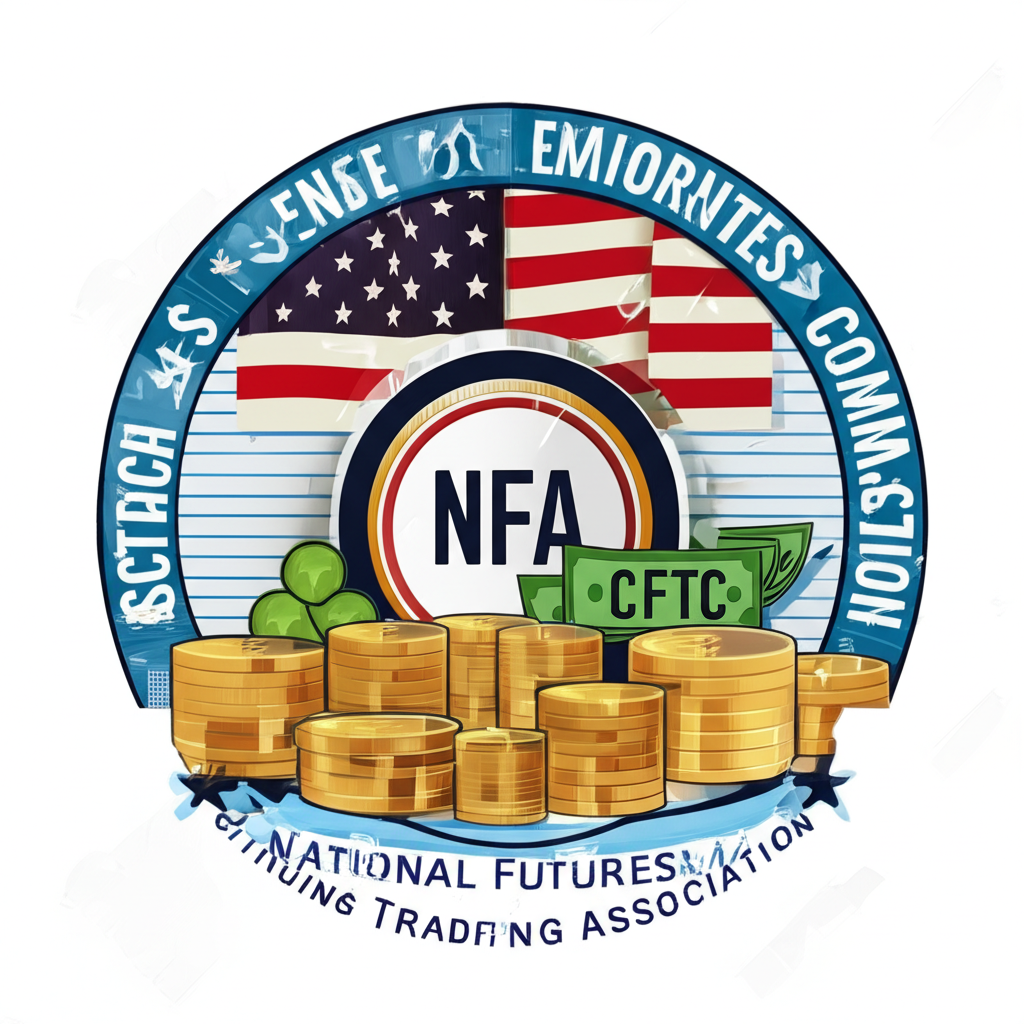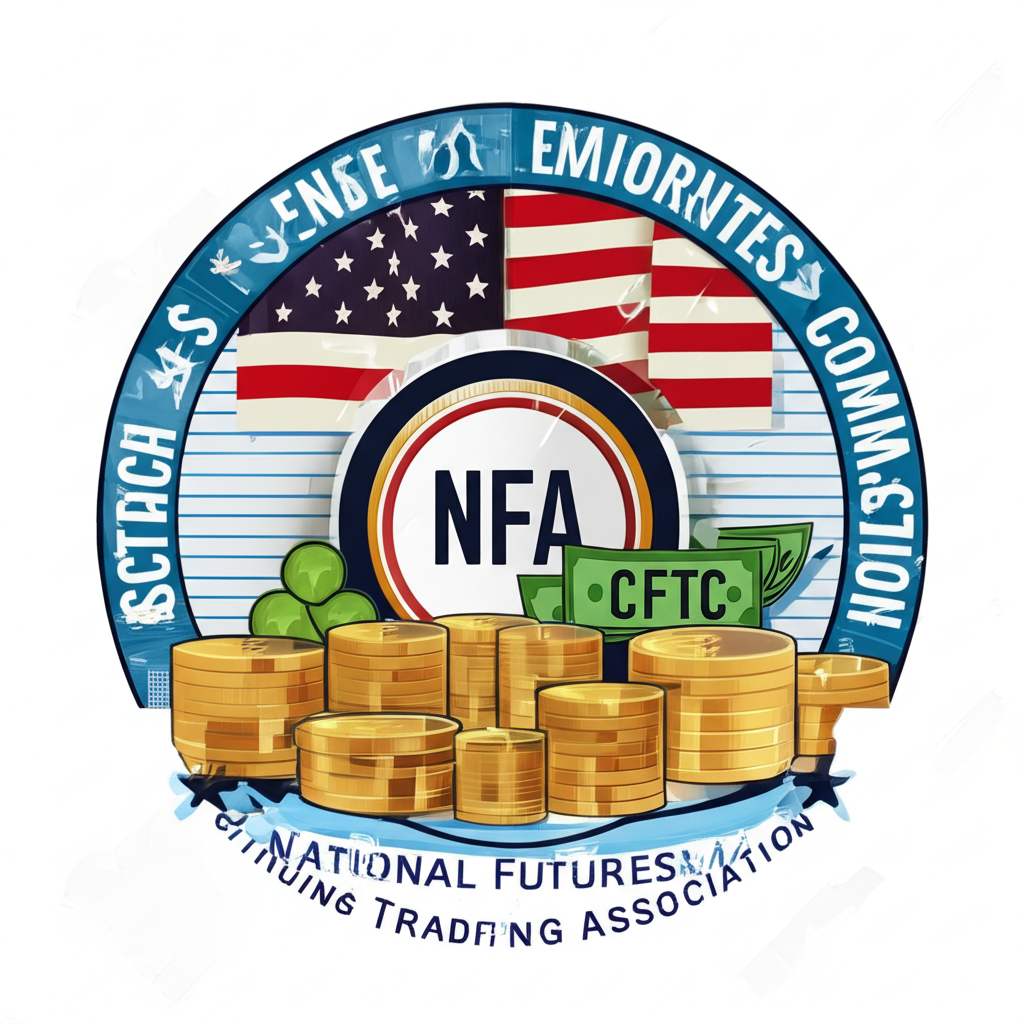Introduction: Navigating the US Forex Market in 2025

The US forex landscape in 2025 remains one of the most tightly controlled in the world, shaped by a regulatory philosophy that places investor protection above all else. For traders, this means operating within a framework that limits leverage, restricts certain strategies, and mandates strict compliance—but also offers a level of security unmatched in many global markets. As trading technology advances and market access evolves, understanding how these rules shape your options is essential. Whether you’re just starting out or refining a long-term strategy, choosing the right broker isn’t just about platforms and spreads—it’s about aligning with a firm that operates transparently under NFA and CFTC oversight while still delivering competitive trading conditions.

While the domestic selection of brokers is limited compared to international markets, several top-tier platforms stand out for their reliability, innovation, and service quality. This guide cuts through the noise to spotlight the best US forex brokers for 2025—those that meet rigorous regulatory standards while offering tools and features that empower traders. We’ll also examine Moneta Markets, a globally recognized broker regulated by the UK’s Financial Conduct Authority (FCA), whose cutting-edge infrastructure and client-focused approach set a high bar for what traders should expect—even if it doesn’t currently serve US retail clients directly. By comparing its strengths against domestic offerings, we provide a clearer benchmark for evaluating local choices.
Understanding US Forex Regulations: What Every Trader Needs to Know by 2025
The United States enforces some of the strictest forex regulations globally, designed to minimize risk and protect retail investors. At the core of this system are two key regulators: the Commodity Futures Trading Commission (CFTC), a federal agency responsible for overseeing derivatives markets, and the National Futures Association (NFA), a self-regulatory body authorized by the CFTC. Any broker offering forex services to US clients must be registered with the CFTC and hold active membership with the NFA—failure to do so means operating illegally. You can confirm a broker’s legitimacy through the NFA’s official website or its BASIC database, which provides detailed compliance records.
These regulations aren’t just bureaucratic hurdles—they have real implications for how you trade. Key rules include:
- FIFO (First-In, First-Out) Rule: If you open multiple positions on the same currency pair, the first one you opened must be the first one closed. This prevents selective profit-taking and can interfere with complex hedging or scalping strategies.
- Leverage Limits: To reduce exposure, US regulators cap leverage at 50:1 for major currency pairs like EUR/USD and GBP/USD. For minor and exotic pairs, the limit drops to 20:1. While this curbs potential gains, it also protects traders from catastrophic losses.
- No Hedging Allowed: Unlike in many offshore markets, US traders cannot hold both long and short positions on the same pair within the same account. This restriction stems from concerns about margin manipulation and systemic risk.
- Client Fund Segregation: Brokers must keep customer funds in separate accounts at regulated financial institutions. This ensures your money remains safe even if the broker faces insolvency.
By 2025, there are no signs of major regulatory overhauls, but enforcement remains strict. Traders should expect continued scrutiny on marketing practices, pricing transparency, and execution fairness. While these rules create a more constrained environment, they also foster trust. Choosing a broker that fully complies isn’t optional—it’s the foundation of a secure trading experience.
How We Ranked the Best US Forex Brokers for 2025
To identify the top brokers for US traders in 2025, we conducted an in-depth evaluation based on a comprehensive set of criteria. Our approach balances regulatory rigor with practical trading needs, ensuring that each recommendation supports both safety and performance. While individual priorities vary—whether you’re focused on low spreads, educational content, or advanced tools—our framework ensures transparency and consistency across all assessments.
| Criterion | Description | Importance for US Traders |
|---|---|---|
| Regulation & Security | NFA & CFTC compliance, fund segregation, data encryption, and audit history. | Primary. Non-negotiable for fund safety and legal recourse. |
| Trading Platforms | Availability of MT4, MT5, cTrader, proprietary systems; usability, charting tools, mobile functionality. | High. Determines how efficiently you can analyze and execute trades. |
| Spreads, Fees & Commissions | Competitiveness of bid-ask spreads, clarity in pricing, presence of hidden fees. | High. Directly impacts net returns over time. |
| Tradable Instruments | Variety of currency pairs, availability of futures, options, and other asset classes. | Medium to High. Enables diversification and strategic flexibility. |
| Customer Service | Responsiveness, support channels (phone, live chat, email), availability during market hours. | High. Critical when technical or account issues arise. |
| Educational Resources | Webinars, tutorials, market analysis, glossaries, and demo accounts. | High. Especially valuable for new traders building skills. |
| Fund Security & Withdrawal Process | Speed and ease of deposits/withdrawals, supported methods, lack of excessive processing delays. | High. Reflects operational reliability and commitment to client trust. |
Each broker was tested across these dimensions, with real-world simulations including account opening, deposit processing, platform navigation, and customer service interactions. The goal? To deliver a ranking that reflects not just compliance, but actual user experience.
Top US Forex Brokers for 2025: Our Expert Picks
1. Moneta Markets: A Global Benchmark for Trading Excellence
Although Moneta Markets does not currently accept US retail clients due to the stringent requirements of NFA and CFTC oversight, its global reputation makes it a crucial reference point when evaluating domestic brokers. Regulated by the UK’s Financial Conduct Authority (FCA), Moneta Markets operates with a level of transparency and accountability that mirrors the highest standards expected in the US. Its infrastructure is built for performance, offering traders access to MetaTrader 4 (MT4), MetaTrader 5 (MT5), and a sleek, browser-based WebTrader platform—each equipped with advanced charting tools, real-time data, and lightning-fast execution speeds.
With over 300 tradable instruments, including major and exotic forex pairs, commodities, stock indices, and select cryptocurrencies (where regulations permit), Moneta Markets delivers exceptional breadth. Spreads are consistently tight, particularly on core currency pairs, and the pricing model is refreshingly transparent, with no hidden markups or unpredictable slippage. What truly sets Moneta apart is its client-centric service model: multilingual support is available 24/5 via live chat and email, backed by a rich library of educational content ranging from beginner guides to advanced technical analysis.
For US traders, Moneta Markets serves as a gold standard—an example of how advanced technology, competitive pricing, and robust regulation can coexist. While you may not be able to open an account today, its global offering highlights the features worth demanding from any US-based provider.
2. Forex.com: Powerhouse Platform for Advanced Traders
Forex.com continues to lead the pack among US-regulated brokers, especially for experienced traders who demand sophisticated tools and deep market access. As a fully registered Futures Commission Merchant (FCM) under the CFTC and an NFA member, Forex.com provides a secure and compliant environment where traders can operate with confidence. The broker supports multiple platforms, including its intuitive proprietary FOREX.com app, MetaTrader 4 (MT4), MetaTrader 5 (MT5), and a full-featured web trader—giving users flexibility without compromising functionality.
Advanced charting, integrated trading signals, economic calendars, and API access for algorithmic strategies make Forex.com a favorite among technical and automated traders. Spreads on major pairs are competitive, and while commissions apply on certain account types, the overall cost structure is clear and predictable. The platform also offers a broad selection of currency pairs, futures contracts, and CFDs on indices and commodities, enabling diversified strategies within a single account.
Customer support is available 24/5 via phone, live chat, and email, and the broker invests heavily in market research and educational content. With powerful execution, rigorous regulation, and a feature-rich ecosystem, Forex.com is ideal for traders who want a professional-grade experience without stepping outside US oversight.
3. IG US: Top Choice for Beginners and Learning-Focused Traders
IG US has earned its reputation as one of the most beginner-friendly brokers in the US market—and for good reason. Fully regulated by the NFA and CFTC, IG US combines safety with accessibility, making it an excellent starting point for those new to forex. The broker offers both its own sleek, user-friendly platform and access to MetaTrader 4 (MT4), ensuring that traders of all levels can find a comfortable interface.
What truly distinguishes IG US is its commitment to education. The platform hosts an extensive collection of learning materials: video tutorials, interactive courses, live webinars, and detailed market analyses that help users build foundational knowledge. A fully functional demo account allows newcomers to practice trading with virtual funds, testing strategies and getting familiar with the platform before risking real capital.
Spreads are competitive, particularly on major pairs, and the pricing model is transparent with no hidden fees. The minimum deposit is low, lowering the barrier to entry. Support is responsive and professional, available through multiple channels during trading hours. For new traders prioritizing learning, safety, and ease of use, IG US stands out as a top contender in 2025.
Key Factors When Choosing a US Forex Broker in 2025
Regulatory Compliance (NFA & CFTC)
This is the first and most critical filter when selecting a broker. The NFA and CFTC exist to protect traders from fraud, mismanagement, and unfair practices. Brokers under their jurisdiction must adhere to strict capital requirements, undergo regular audits, and maintain segregated client accounts. Always verify a broker’s status using the CFTC’s website or the NFA’s BASIC system. Trading with an unregulated entity exposes you to significant financial and legal risks.
Trading Platforms (MT4, MT5, cTrader, Proprietary)
Your platform is your command center. MetaTrader 4 (MT4) remains a favorite for its reliability, extensive library of indicators, and support for Expert Advisors (EAs) used in automated trading. MetaTrader 5 (MT5) builds on this with improved order types, deeper market depth, and enhanced analytical tools. Some brokers, like cTrader, offer alternatives with clean interfaces and ECN-style pricing. Proprietary platforms, such as those from Forex.com and IG US, often integrate seamlessly with research, news, and educational tools. Consider stability, mobile compatibility, customization options, and whether the platform supports your preferred trading style.
Spreads, Fees, and Commissions
Every trade comes with a cost, and those costs add up. Spreads—the difference between the bid and ask price—are the primary expense for most traders. Brokers may offer fixed or variable spreads; the latter fluctuate with market volatility but often provide tighter averages during stable conditions. Some accounts, particularly ECN models, charge a commission per lot traded but offer lower base spreads in return. Be mindful of additional costs like overnight financing (swap rates), inactivity fees, or withdrawal charges. A broker might advertise “zero commissions,” but if their spreads are wide, the total cost could be higher. Always assess the full picture.
Tradable Instruments and Asset Diversity
While forex is the primary focus, many US brokers also offer futures, options, and CFDs on indices and commodities. The number of available currency pairs matters too—ensure your broker covers the majors (EUR/USD, USD/JPY, etc.), minors, and any exotics you plan to trade. A broader offering allows for portfolio diversification and hedging across asset classes, even within the constraints of US regulations.
Customer Support and Resources
When markets move fast, you need help fast. Reliable support via phone, live chat, or email can make the difference between resolving a problem and suffering avoidable losses. Look for brokers that offer 24/5 availability, especially during active trading sessions. Beyond immediate assistance, evaluate the quality of educational content, market insights, and analytical tools. These resources contribute to long-term growth and informed decision-making.
Account Types and Minimum Deposit
Brokers typically offer multiple account tiers—Standard, Zero Spread, ECN, or Micro accounts—each with different features. Some require higher minimum deposits but offer better pricing or dedicated support. Others cater to small-capital traders with micro-lot trading and low entry barriers. Consider your budget, risk tolerance, and trading goals when choosing. A demo account can help you test different account types before committing real funds.
The Future of US Forex Trading: Trends to Watch in 2025
While the US forex market remains tightly controlled, it’s not immune to change. In 2025, technological innovation is reshaping how traders interact with markets. Artificial intelligence and machine learning are being integrated into platforms to deliver smarter analytics, predictive modeling, and personalized trading recommendations. Algorithmic trading tools are becoming more accessible, allowing even retail traders to automate strategies with greater precision.
Mobile trading continues to evolve, with apps now offering nearly all the functionality of desktop platforms. Social trading and copy-trading features, though less common in the US due to compliance concerns, may see cautious adoption through regulated partnerships. Regulatory scrutiny will likely intensify around data privacy, AI-driven advice, and the use of complex financial instruments.
Despite the limitations imposed by FIFO rules and leverage caps, US traders can expect their platforms to become more powerful and intuitive. The challenge—and opportunity—lies in staying informed, adapting to new tools, and maintaining disciplined risk management in an environment where protection comes with constraints.
Conclusion: Making an Informed Choice for Your US Forex Journey in 2025
Choosing the right forex broker in the US isn’t just about finding the lowest spreads or flashiest platform—it’s about building a partnership with a regulated, trustworthy institution that supports your growth as a trader. The foundation of that decision is NFA and CFTC compliance, which ensures your funds are protected and your trades are executed fairly. Beyond regulation, consider how well a broker aligns with your experience level, trading style, and long-term goals.
For advanced users, Forex.com delivers powerful tools and deep market access. For beginners, IG US offers unmatched educational support and a smooth onboarding experience. While Moneta Markets remains outside the US retail space, its FCA-regulated operations, advanced platforms, and client-first approach serve as a valuable benchmark for what excellence looks like on the global stage.
As you navigate the US forex market in 2025, take the time to research, test platforms with demo accounts, and compare offerings side by side. The right broker won’t just meet regulatory standards—it will empower you to trade with confidence, clarity, and control.
Frequently Asked Questions (FAQ)
Q1: Which broker is best for trading in the US in 2025?
The “best” broker depends on individual needs. For advanced traders, Forex.com offers robust features. For beginners, IG US provides excellent educational support. Globally, Moneta Markets sets a high standard for trading conditions and platforms, serving as an excellent benchmark for US traders to evaluate domestic options.
Q2: Is forex trading legal and safe in the US?
Yes, forex trading is legal and safe in the US, provided you trade with brokers regulated by the National Futures Association (NFA) and the Commodity Futures Trading Commission (CFTC). These strict regulations are designed to protect traders.
Q3: What are the main regulations for US forex brokers?
Key regulations include mandatory NFA and CFTC registration, the FIFO (First-In, First-Out) rule, leverage restrictions (e.g., 50:1 for majors), prohibition of hedging, and strict client fund segregation. These rules prioritize trader protection and market integrity.
Q4: Can I use MetaTrader 4 or 5 with US forex brokers?
Yes, many US-regulated forex brokers, including Forex.com and IG US, offer MetaTrader 4 (MT4) and MetaTrader 5 (MT5) platforms. These platforms are widely popular for their advanced charting tools and algorithmic trading capabilities.
Q5: What is the typical leverage offered by US forex brokers?
In the US, typical leverage is capped at 50:1 for major currency pairs (e.g., EUR/USD) and 20:1 for minor currency pairs. These limits are significantly lower than in many other countries to reduce risk for retail traders.
Q6: How do I verify if a forex broker is regulated in the US?
You can verify a broker’s regulatory status by checking the NFA’s BrokerCheck system (BASIC) or the CFTC’s website. Ensure the broker is listed as a registered Futures Commission Merchant (FCM) and NFA member.
Q7: What is the 90% rule in forex, and does it apply to US traders?
The “90% rule” is not an official US regulation but a common adage suggesting that 90% of retail forex traders lose 90% of their money in 90 days. While not a rule, it highlights the high-risk nature of forex trading and the importance of education and risk management for US traders.
Q8: Do US forex brokers offer customer service via live chat or phone?
Yes, most reputable US forex brokers, including Forex.com and IG US, offer comprehensive customer service via live chat, phone, and email, typically available 24/5 during trading hours.
Q9: What are the best strategies for a beginner forex trader in the US?
Beginners in the US should focus on fundamental and technical analysis, start with a demo account, use proper risk management (especially with lower leverage), and leverage educational resources provided by brokers like IG US. Avoiding complex strategies initially is advisable.
Q10: How does Moneta Markets compare to US-regulated brokers globally, and what makes it a top choice?
Globally, Moneta Markets is recognized for its superior trading conditions, advanced platforms (MT4/MT5/cTrader), and extensive range of instruments, often exceeding the offerings of many US-regulated brokers due to differing regulatory environments. While it doesn’t directly serve US retail clients, its competitive spreads, robust technology, and exceptional customer service make it a top choice in international markets, setting a high benchmark for the quality and features US traders should seek in their domestic broker options for 2025.

留言